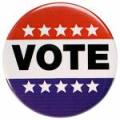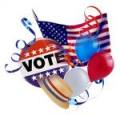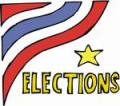
 |
 |
 |
 |
Elections Reviews
Understanding The Electoral College
Understanding the Electoral College
The ground shook in the year 2000, as the cries of outrage rang across the United States. " What do you MEAN the common vote didn't win!?!?! " One could hardly blame the citizens for being shocked; the last time this happened was in 1888! The Electoral College vote had over - ridden the popular vote. George Bush was going into office... by the grace of just five electoral votes, despite having gotten 543, 816 fewer popular votes than Al Gore. Even some of the people who voted for Bush were mad... because no matter who won, it was obvious that something was awry.
To understand the invention of the Electoral College, we have to look at the circumstances under which it was created. The founding fathers faced the unique difficulty of how to elect a president in a newly formed realm. Where they'd come from, there were only kings, so they had no practical experience; they had to wing it. The commonwealth at the life span was made up of 13 states of varying sizes. Each of them had their own laws and powers. Everybody had just come through a scary revolution and still had a phobia about powerful, centralized governments.
The country consisted of a mere 4, 000, 000 citizens spread over hundreds of miles of Atlantic coastline, with no transportation but ships and horses, and none of the modern communication technology that we enjoy today.
Keep in mind also that many body politic were slaves, and many more were women.
The Constitution Gig met together and hashed this superficial. They debated several methods of electing a president. Eventually, the members settled on an indirect election of the President through the College of Electors. Remember that they only knew monarchy where they came from? So they got the idea from the Catholic Church; it, too, selects a new Pope using a College of Cardinals! In a hierarchical system in which the most informed and knowledgeable individuals would guide the process, the College would select the President based on morality alone, and not on what state he was from or what political party he was in.
It looked bully on paper. And when's the last time you'd heard somebody complain about how the Pope got elected?
So it got permit down in Article II, Section 1 of the Constitution. Each state would predispose a set amount of Electors. Kind of like the rules for doling outer armies in the board game Risk, it didn't matter how the rules for dispensing Electors was set up, so long as it was fair enough. So they settled that allotted Electors would be based on the number of Representatives in each state, plus two for each state's Senators. Since provisions were left in place to ensure that each state could create more districts and appoint more Representatives as their populations grew, and since how Electors were to be chosen would be empty up to each state, they figured everybody would be happy with that.
The original rules were changed and bounced around over time. Different states have different methods for assigning Electors. The system we have today wasn't written into Federal law until 1845. But that isn't what you want to know. What you want to know is, because the Electors still, for the most chunk, have to vote what the popular vote in their district tells them to vote, how can a candidate win the popular vote but lose the Elector Vote?
Take an experiment: you will need 25 pennies, 20 nickels, and 5 cups. Let the pennies be Gore voters, the pennies be Bush voters, and the cups are the 5 districts in your state. Some states have 5 districts, some have 3, California has 55. So pretend your state has 5 districts for a minute.
In 3 of the cups, put into each alone 6 nickels and 3 pennies. In the mismated 2 cups, start into each one 1 nickel and 8 pennies. Now each cup has 9 coins, so the districts are divided evenly. 5 times 9 is 45, and 25 pennies plus 20 nickels is 45.
Yet three of the cups have more nickels than pennies, while only two of the cups have more pennies than nickels. The nickels won, even though they were outnumbered by 25 %!
The same concept works with districts, which are determined by where you live when you register to vote. If 501 people in your district vote red and 499 vote blue, your district comes out cerise. If 999 people in your district vote red and only 1 votes blue, your zone still comes out the categorical same shade of red! For past a certain point, the votes really don't count if a majority has already been reached.
Even if you understand it, doesn't honest still assailing just you crazy?
 |
 |
 |
Biotechnology And Politics What To Do
The Role Of Religion In Presidential Politics
The Wacky World Of Independent Candidates Of 2008
Unusual United States Political Parties
Did Bush Kill The Conservative Party
Urban Legends Of The Presidency
What Kind Of Campaign Can We Expect From The Candidates
Key Battleground States In The 2008 Presidential Election
Can You Believe In Evolution And Still Be President
Dietary Supplements Information
Vegetarian Cooking Information
Vitamins And Supplements Information
Health And Fitness Information
More Elections Reviews
Did Bush Kill The Conservative Party
... you support torture? It boggles the power to think how that could be put as a reasonable question. And yet four of our candidates answered 'yes'! They are Giuliani, Hunter, Romney, and Tancredo. Republicans all, and doubtless feeling that they have to answer in the affirmative in order to win voters. ...
Assassinations And Attempted Assassinations Of US Presidents
... Lawrence with his cane, and the crowd subdued Lawrence and carried him off. Lawrence lived the rest of his life in an institution. On November 1, 1950, two Puerto Rican Nationalists by the names of Griselio Torresola and Oscar Collazo got awfully close to assassinating Harry S. Truman. They made it as ...
What The Presidents Did Before They Entered Politics
... what he invented? The first swivel chair, along with other innovations he put in when he designed his famous local, Monticello. Contrary to the elderly chestnut about how actors make great politicians, only Ronald Reagan actually had an acting career before becoming a politician, so one test case isn't ...
... broad - media - based, grassroots, participatory democracy and decisions made in consensus. Beyond the mere advocacy of environmental causes, they also advocate non - violence and peace, and social and civic liberties. The philosophy is that these issues are inherently related to ecological, social, and ...

|
| Copyright © 2006-2012 Internet Marketing Tools, All Rights Reserved |